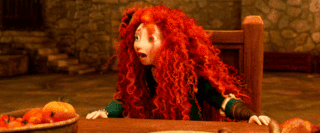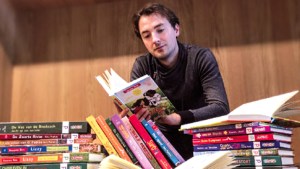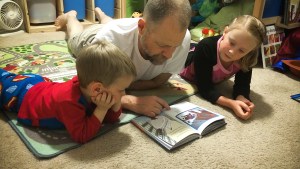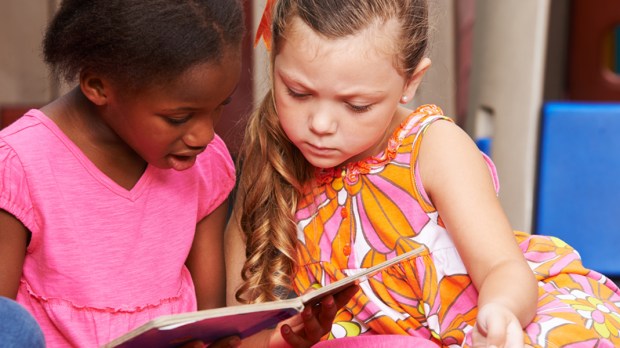So the real key to early literacy has been discovered, according to a new study published in Developmental Psychology. The study concludes that the most valuable early literacy skill isn’t sight word or alphabet recognition, but a child’s ability to use invented spelling as he or she writes. Inevitably, adults have responded with various ways for teachers (and parents) to encourage invented spelling— including integrating “the child’s invented spelling into a reading and fluency lesson.”

Listen, I cannot think of a better way to discourage a child from inventing spelling ever again than to “integrate it into a reading and fluency lesson.” I fell asleep just reading that suggestion — how do you think a 5-year-old would react?
Here’s the real key to early childhood literacy: BURN IT DOWN.

Read more:
These fonts for dyslexics may make reading easier
When my oldest daughter Sienna was 5, I decided to homeschool her. We were transitioning between Vegas and Florida and it made more sense than bouncing her from school to school. I didn’t think it would be that hard — I mean, it’s kindergarten, right? Just teach her to read and count, throw in some finger painting and call it a day. How hard can it be?
So hard. So very, very hard.
I didn’t know then that the majority of kids are not ready to read at the age of 5. I don’t mean they don’t want to or would rather make mud pies; I mean their brains are developmentally incapable of the complex processes necessary to read.
Sienna wasn’t ready to read when she was 5, but I didn’t understand that. I thought she was being stubborn, lazy, and willfully obtuse. I pleaded, cajoled, threatened, yelled, and one spectacularly awful day, I sent her to bed without dinner. Because she couldn’t blend sounds.
What I put her through was terrible, and made homeschooling an awful ordeal for us both. By the time we got settled in Florida I had given it up entirely. When she failed her first grade entrance exam at the private school down the street because she didn’t know how to read, I was ashamed of how I had failed her.

Read more:
5 Great bedtime books for Catholic kids
My husband spent the summer trying to get her ready for first grade, but despite his endless patience she made little headway. She just wasn’t getting it — worse, she now hated the very idea of reading. She cried through most of her lessons and started saying things like, “I’m too stupid to read.”
She wasn’t stupid — she was very bright. She just wasn’t ready to read.
First grade was hard. All the other kids in her class were reading and she was still stuck trying to blend sounds. She struggled through the first half of the year with private tutoring and by Christmas break was haltingly reading simple sentences. But her new best friend was reading avidly, and on Christmas Day he excitedly showed off a stack of new books.
Sienna looked at the books longingly and said, “I wish I could read chapter books.”
Within a month, she was reading chapter books. It was like a switch had flipped — the combination of motivation and maturity managed in one month to do what all the angst-ridden lessons of the past 18 months had failed to do. By March she no longer needed tutoring. By the summer she was reading aloud smoothly, with proper inflection.
Read more:
WATCH: Pope Francis praises saintly pioneers in education and matters of faith
But she didn’t love it. She still doesn’t. She’ll read, but grudgingly … and I know the early pressure to read was too much, far too soon.
In worldwide academic rankings, the US performs dismally. For last few decades we keep trying to improve our educational system by expecting more from students academically. Earlier reading, more hours, more homework, more honors classes, more testing, more work and far, far less play. Some schools have gotten rid of recess entirely and replaced it with another form of academics —dreadfully structured physical education. But as academics have increased, education has decreased — and our rankings prove it.
Finland consistently ranks at the top. But Finnish students have more recess, shorter hours, no honors classes, no standardized tests, and the lightest homework load of any industrialized nation. Perhaps most importantly, Finnish children begin preschool at age six, and their 4-hour school days consist almost entirely of play.
“Play is a very efficient way of learning for children,” she [Arja-Sisko Holappa, a counselor for the Finnish National Board of Education] told me. “And we can use it in a way that children will learn with joy.” …Throughout Finland, kindergarten teachers and parents meet during the fall to make an individualized learning plan, shaped by each child’s interests and levels of readiness, which could include the goal of learning how to read. For Finnish kindergartners who seem primed for reading instruction, Holappa told me it’s still possible to teach them in a playful manner. She recommended the work of the Norwegian researcher Arne Trageton—a pioneer in the area of play-based literacy instruction.
You know what “invented spelling” sounds a lot like? Playing.
Children learn through play. Unstructured play is critical to child development. We know this and we still keep taking play away from kids at younger and younger ages. This latest research only identifies one component — that playing at writing helps kids become better readers. And what do we do with it?! Advise teachers and parents to turn play into a lesson.
Lessons are the opposite of play. Kids will be learning lessons for the rest of their lives, but their brains need to develop first. And we know that playing is the best way to do that.
So stop the madness — stop the studies and the lessons and the early childhood literacy projects and let the children play.

